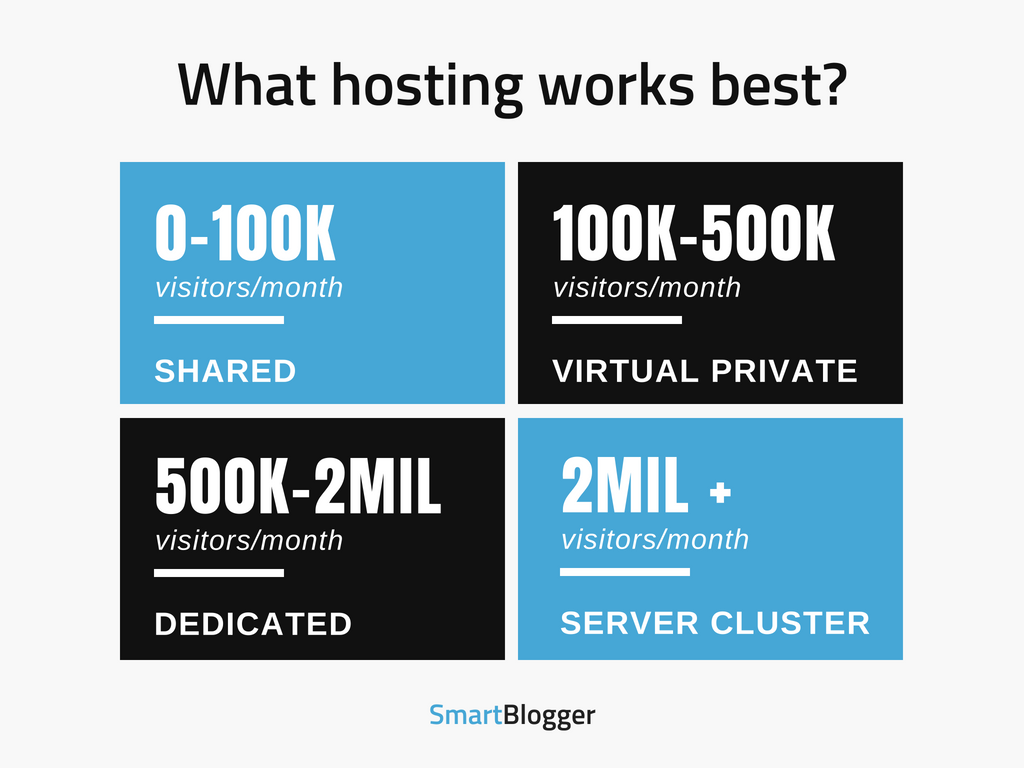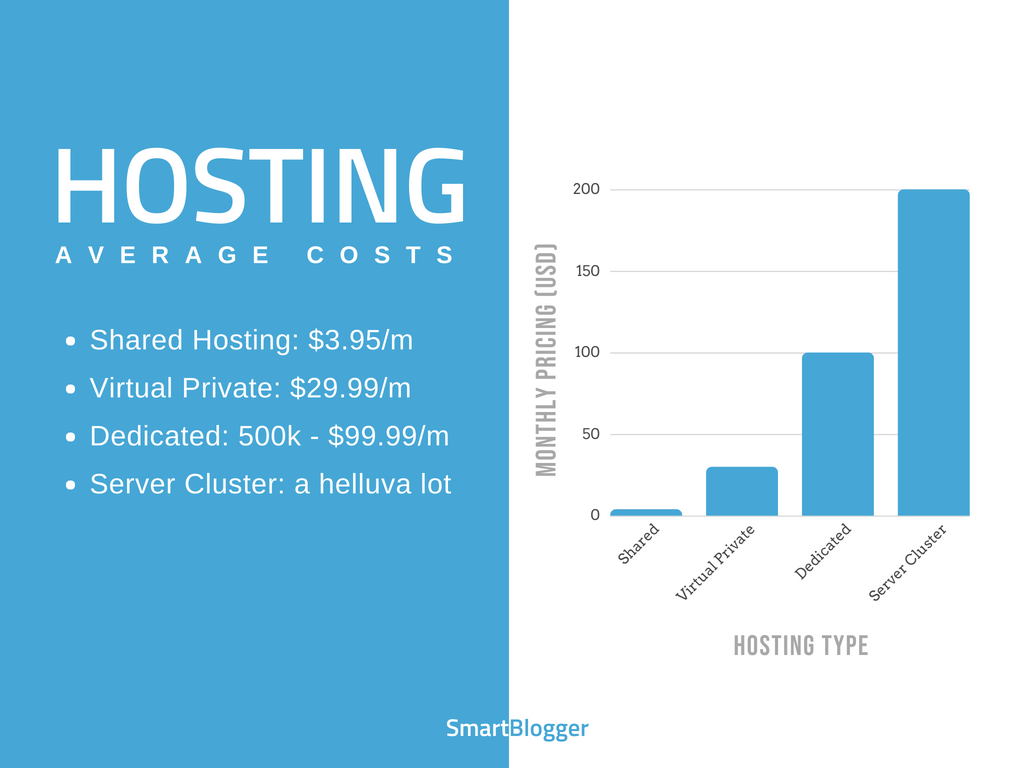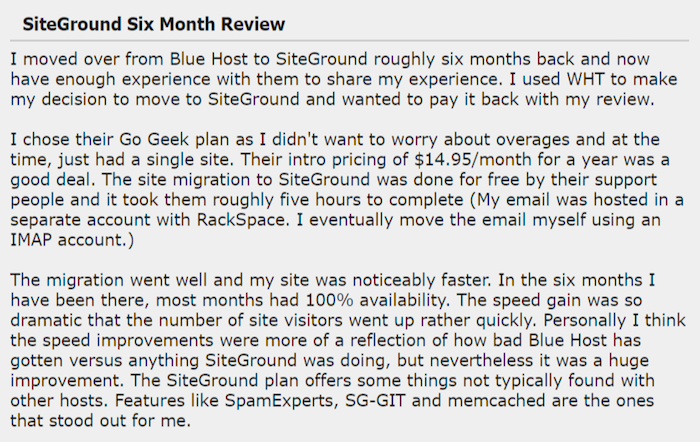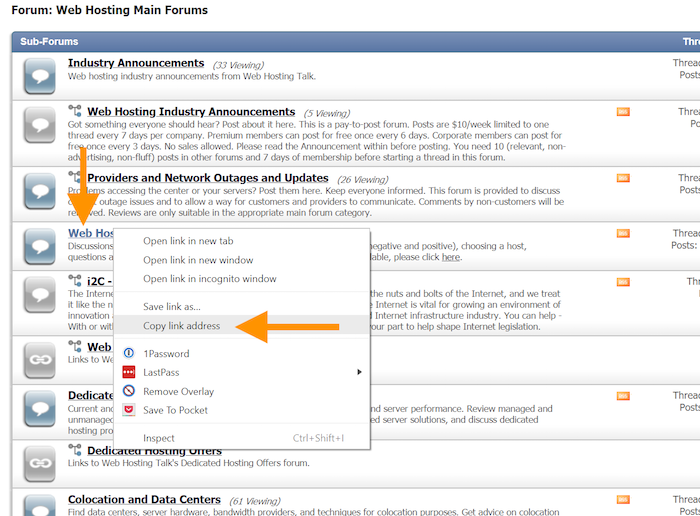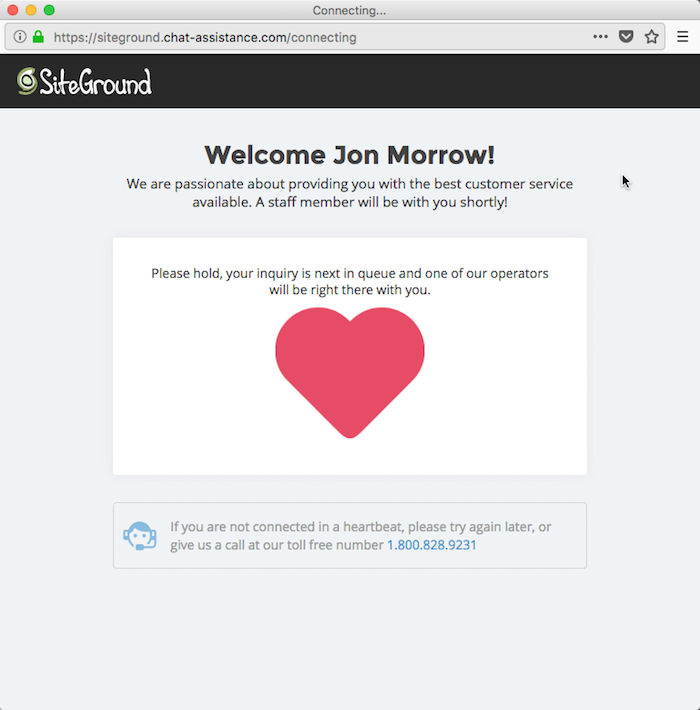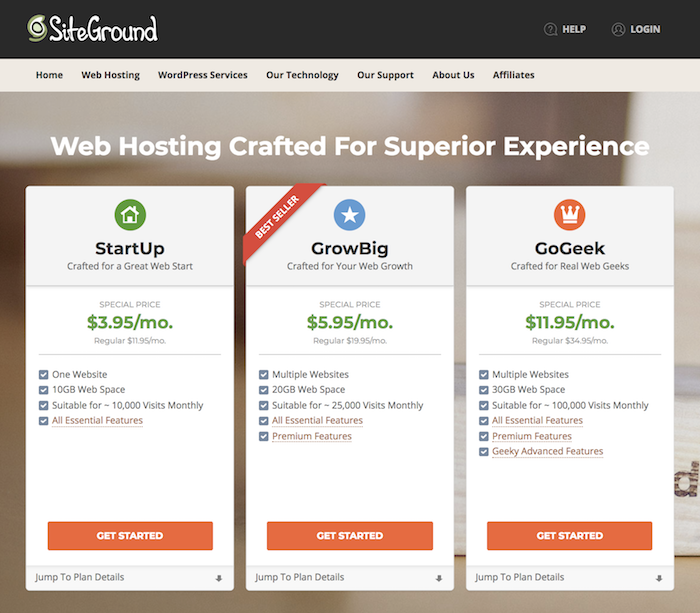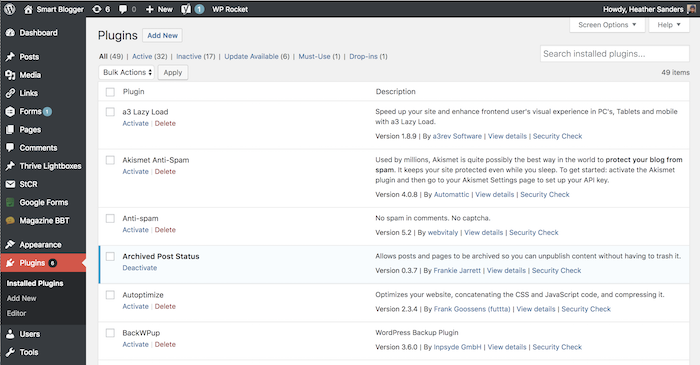
This is painful to say, but…
Most of what’s published out there about WordPress hosting is total BS.
Not just incomplete information. Not just half-truths.
I’m talking outright lies and boldfaced scams.
You can’t even get straightforward answers to basic questions like…
- Should you go to the trouble of setting up a WordPress site or just start a blog for free on Medium?
- Which company is good? Who can you trust?
- What’s the difference between all the different options?
It’s infuriating, but listen…
I’ve helped build and run some of the most popular blogs in the world, scaling them from nothing to millions of visitors per month. During that process, I learned a lot of valuable lessons — often the hard way — about what makes a good WordPress host.
And today, I’m publishing the guide I wish somebody had given me.
It’s brutally honest. It’s full of technical details (that I do my best to explain). It’ll also save you tons of time and money.
The Different Levels of WordPress Hosting
To start, here’s an infographic explaining the typical path most bloggers take:
They start with a shared host, and then they grow to a Virtual Private Server, and then they grow to a Dedicated Server.
Wondering how that applies to you?
Here’s the short answer:
TLDR: The Best WordPress Hosting Right Now (In My Opinion)
If you’re under 100,000 visitors per month, don’t torture yourself by getting a VPS or dedicated server. Just grab a cheap, no-frills shared hosting account.
Is it the best hosting in the world?
No, but it’s way better value than the alternatives. Here’s a pricing comparison:
The more expensive things get, the more complicated and frustrating it gets too. You’ve never experienced misery until you try to optimize a dedicated server for the first time.
My advice?
Keep it simple and cheap. Use a shared host.
Now, that begs the question…
What’s the Most Cost-Effective Hosting for WordPress?
Personally, I use SiteGround (affiliate link) for all my new sites. Here’s why:
- It’s the best balance I’ve found of quality and price. You can find cheaper hosts, but you can’t find anyone cheap that’s as good as them.
- They are optimized for WordPress. Your site will run faster there than on many hosts.
- I use them personally to host most of our sites, and both their servers and support have always been excellent.
That being said, I’ll be straight with you…
SiteGround isn’t the only great host in the world. They’re just the one I personally use and recommend to our 2.6 million readers. I wouldn’t endorse them publicly without having a lot of confidence in them.
But there other good companies with a different approach.
Who Is the Best WordPress Host, Regardless of Price?
WP Engine (affiliate) has an impeccable reputation for flawless hosting and support. In my opinion, there’s no question they are better than SiteGround, but they are also 10X more expensive.
Is it worth it?
If you want a host that can take unlimited traffic and has WordPress experts standing by to help you with pretty much anything you need, plus you’re hosting a business website with a significant budget, maybe it’s worth the extra cost. Quite a few big blogs host with them, and they believe it’s worth every penny.
I’ve also been to their offices in downtown Austin and met with the executive team. It’s a solid company that’ll be around for years to come.
The bottom line:
If you want to skip the rest of this post and just choose a host, go with SiteGround (affiliate link) if you have a small budget and WP Engine (affiliate) if you have a large one. You won’t regret going with other company.
Before you choose any WordPress host though, here’s an important point you should understand:
Most Reviews Are Bought and Paid for
Pretty much every blogger making a hosting recommendation is getting compensated by the host. And yes, that includes me.
The difference?
I’m not hiding anything. I’m proud of the partnerships I have with SiteGround (affiliate link) and WP Engine (affiliate), because I have personal experience with both companies, many of my students are customers, and they treat everyone extremely well. I would happily recommend them even if they weren’t paying me a penny.
And that’s NOT true for other bloggers.
Most don’t even use the host they are recommending. In my opinion, that’s just unethical.
Especially when it comes to one particular company…
Many Hosts are Owned by the Same Terrible Company
| 2slick.com | FreeYellow | PowWeb |
| AccountSupport | Glob@t | PureHost |
| A Small Orange | Homestead | ReadyHosting |
| ApolloHosting | HostCentric | ResellerClub |
| AptHost | HostClear | SEOGears |
| Arvixe | Host Excellence | SEO Hosting |
| Berry Information Systems | HostGator | Site5 |
| BigRock | HostMonster | SiteBuilder.com |
| BizLand | HostNine | Sitelio |
| BlueDomino | HostYourSite.com | Sitey |
| BlueFur | HostV | Southeast Web |
| BlueHost | HyperMart | Spry |
| BuyDomains | IdeaHost | StartLogic |
| Cirtex Hosting | IMOutdoors | SuperGreen Hosting |
| Cloud by IX | Impress.ly | TypePad |
| Constant Contact | Intuit Websites | USANetHosting |
| Directi | iPage | vDeck |
| Dollar2Host | IPOWER/iPowerWeb | Verio |
| Domain.com | IX Web Hosting | VirtualAvenue |
| DomainHost | JustCloud | VPSLink |
| Dot5Hosting | JustHost | WebHost4Life |
| Dotster | LogicBoxes | WebHosting.info |
| easyCGI | MojoMarketplace | WebsiteBuilder.com |
| eHost | MyDomain | Webstrike Solutions |
| EntryHost | MyResellerHome | Webzai |
| Escalate Internet | NetFirms | World Wide Web Hosting |
| FastDomain | Networks Web Hosting | Xeran |
| FatCow | Nexx | YourWebHosting |
Ever heard of Bluehost?
Or maybe Hostgator?
Both hosts are owned by a conglomerate called Endurance International Group (EIG). In fact, EIG runs most of the big hosting companies, and it continues to buy new ones all the time.
So what makes them so awful?
After they purchase a host, they lay off support staff, stop investing in new technology, and funnel the money into increased advertising and payouts to shareholders. In every case, the reputation of the host plummets.
Of course, you might be wondering how you find out if they own your host. Or for that matter, how do you know if your host is a good one if nearly every review is bought and paid for?
The answer:
The Best Way to Get Unbiased Reviews
Web Hosting Talk is the biggest forum on the web about hosting, and it has literally millions of reviews. They don’t allow affiliate links either, so you can count on the reviews to be unbiased.
Granted, every host gets a bad review now and again, but you can comb through dozens of reports to get a much better feel for the reputation of the host, as well as their strengths and weaknesses.
Also, here’s a little hack to save you some time…
Instead of using the search tool built into their forum, which can be a little clunky, grab the URL of the forum you want to search, and then put the following in Google:
For example, if you wanted to verify the reputation of SiteGround (affiliate link), you can go to their list of forums, right click on the one that seems most appropriate, and copy the link:
From there, use the search parameter above in Google. In this case, it would be:
And voilà, you have a listing of reviews you can easily look through for reliable information.
In particular, here’s the biggest factor that should influence your decision:
How to Evaluate Customer Support
Customer support. When you’re a beginner, it’s more important than anything.
No surprise there, right?
But here’s the big lesson…
It’s not just about wait times or the intelligence of the technicians. It’s also about the method of support, what the host supports, and the helpdesk schedule.
For instance:
- Do you have to submit tickets through their helpdesk and wait for a response, or can you do a live chat or phone call with a technician and actually have a conversation?
- Do they offer support for WordPress and the most popular themes and plug-ins? It’s shocking, but unless they specifically mention it, many don’t.
- Do they offer support 24 hours a day, seven days a week, or is it only during normal business hours?
Personally, I want a host with technicians I can interact with in real time (either through phone or chat), have a thorough knowledge of WordPress, and are available 24 hours a day, seven days a week. And that’s actually relatively difficult to find at an affordable price.
That’s why I think SiteGround (affiliate link) is the best host for most beginners. They give you all those things for an entire year for less than the cost of a dinner at a nice restaurant.
And here’s what’s even cooler…
Their servers are also configured especially for WordPress. Let’s talk about that next.
The Configuration Matters More Than Tech
Chances are, you’ve seen a page on a hosting website that looks something like this:
Almost like a foreign language, right? Disk space, RAM, page views, uniques, SSDs — what’s it all mean? And for that matter, how are you supposed to know which plan is right for you?
Actually… you don’t have to. If you’re running a relatively simple WordPress site, none of those technical details matter much. You can ignore them.
Here’s proof:
In 2012, a fellow named Ewen Leith managed to get a $15 server to run a WordPress site receiving 10 million hits a day. Granted, it was an extremely simple site using a set up that would be tough for a novice to manage, but it’s still proof the configuration of your web host matters much more than having high-end hardware.
That’s another reason why I recommend SiteGround (affiliate link) – their servers are configured specifically for WordPress. Your site will be able to handle far more traffic with far fewer resources. Over the long term, it translates into significant savings, because you have to upgrade less often.
Granted, SiteGround isn’t the only host who does this. If you decide to search for someone else, here’s what to look for:
- Litespeed or Apache NGINX
- Database caching through Memcached
- Support for PHP 7 and HTTP/2
RAM, SSD space, bandwidth — for a normal WordPress site, none of those specs really matter much. Ignore them and focus on the three above details.
Installing Too Many Plugins Can Mess up Any WordPress Host
So, you found a host that’s perfectly optimized for WordPress. Your site should be nice and zippy, right?
Actually… not necessarily.
If you install too many WordPress plugins (or even just one really bad one), you can slow down your site or even cause your host to cancel your account. It’s the most common source of problems.
So,how do you know which plugins to install and which ones to avoid?
The short answer: install as few as possible, and if you ever have problems with your site, the first thing you should always do is try deactivating plugins. For a detailed answer, take a look at our post on essential WordPress plug-ins.
Make Sure You Get a Free SSL Certificate
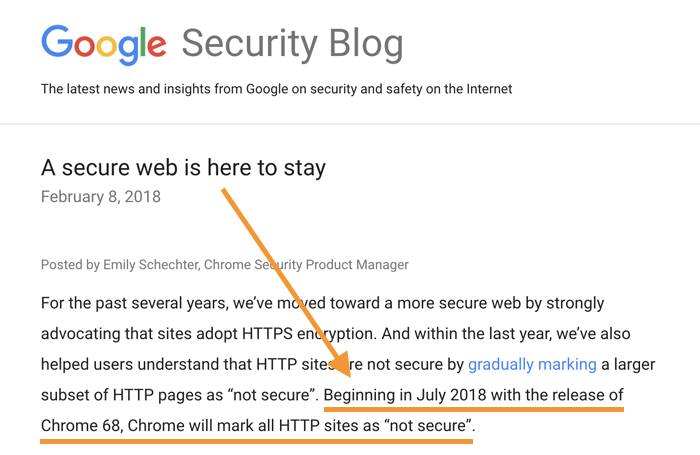
Ever since Google announced that having an SSL certificate is now a ranking factor, it’s become essential for you to have one.
What’s an SSL certificate?
It’s an extra layer of security and reporting around the safety of your website. Any site using SSL will have the prefix “https” in the URL.
In the past, you had to pay a yearly fee to register your SSL certificate, but most of the top web posts are now offering one for free. You should take advantage of that savings and have your site on https from day one.
The 7 Things That Really Matter When Choosing the Best WordPress Host
By this point, I wouldn’t blame you if your head is spinning.
We’ve covered a lot of technical details in this post, so I thought I would conclude with a quick checklist to help you choose the best WordPress host for you. Here are the seven most important things to remember:
- Unless your site is massive, you don’t need a VPS or dedicated server. Stick with a shared host.
- For the love of God, avoid any hosting company owned by EIG.
- When evaluating customer support, look for 24/7 live chat and/or phone support.
- The configuration of your web host matters more than the technical specs
- Go easy on the WordPress plugins. They can slow down your site.
- You should expect to get a free SSL certificate. Use it.
- If you’re tired of thinking about all this stuff, go with either SiteGround (affiliate link) (cheap but good) or WP Engine (affiliate) (premium).
Follow those recommendations, and you’ll save yourself tons of time, money, and headaches. I speak from experience.
Ultimately though, the decision is yours. Choose wisely, my friend.
The post WordPress Hosting: A Brutally Honest Guide That’ll Save You Money appeared first on Smart Blogger.
source https://smartblogger.com/wordpress-hosting/
